For the first time in a year, we’re taking the Breeze express to California. The airline bypasses the bulk of the exposure to Covid, with a one-stop flight direct from Charleston to SFO. No fancy upsell of features, the top tier costs in Breeze points but you can bank them if your plans change. Leave a day earlier on the return, stay a week longer, decide at the last minute to not go at all. It has the luxurious feeling of flexible and calm at a price you buy in to at the high or the low, no matter if you can float the difference between last-minute (expensive) and first class (what they call nicest.) With a growing family of grandchildren and the benefit to adjust your ability to work from anywhere, the scope of what’s possible seems to widen.
In younger days, the California option was a way of riding the rhythm of the times. Born and raised on the East Coast, my family was a series of kitchen coffee tables where our politics and creative communities existed not solely geographically but more usefully in the cracks between the cultures of the 50s and what came next. Musically, it was the 60s, stop, hey, what’s that sound. Miles, Hendrix, Dylan, you know the drill. It was a time of experimentation, sure, but oddly parochial with its bomb shelters, folk singers, and Hollywood spiraling into AI years before we cared. The new capitals of the realm shifted to Boston, Madison, Wisconsin, Berkeley, and anywhere you could test the stability of the new players. It was a car trip along the famous Steinberg New Yorker cover, the one with New York in the foreground, the Hudson river over the bridge, the flyover states, and the Rockies.
It was a time of visual beatniks, Brando on the motorcycle, the grubby hippies, and the dawning age of missile crises. I quit Brandeis, cashed in the next years’ tuition, and bought a VW bus. I was chasing my ex-girlfriend, who dumped me for a commune run by Paul Williams, one of the graduating senior class of rock writers and editor of Crawdaddy magazine. That’s Paul in the foreground at John and Yoko’s bed-in giving peace a chance. There’s me, not so quickly realizing it was time to move on. More rejection was in store as I drove through the redwoods to the Bay Area. It was the beginning of the descent from Woodstock (the event) through the horror of Altamont to the big fadeout of the Hollywood studio era. I reached 20th Century Fox the last week of the studio tours before they unloaded the campus to the real estate machine. I got to walk the set of 1776 (feh) before decamping to the foothills of Mt. Baldy and the Claremont Colleges.
It seemed like another fine mess I’d gotten myself into. No prospects, treading water for the next big thing to happen. Kubrick seemed like the only real deal, parked in England and controlling every detail of the world he could render from afar. The precious bodily fluids of the crazy right wing, I’m sorry, Dave. I can’t do that. The punk beat poetry of the even nearer future. In retrospect, the pathetic motives and language of grievance read as comic satire in those days, making today all the more insufferable like some treacherous Abbott and Costello routine. It’s up to the courts to save us. Hey, that’s it. Let’s hyperfund an automation layer that steals the worst of our culture, dying media industry, and embed it in every pocket. Addled intelligence, the tyranny of the clowns. Niagara Falls it is: slowly I turned, step by step, inch by inch. And the dimly lit realization that anything goes means what it says. In the words of the Mothers of Invention: Call any vegetable and the chances are good that the vegetable will respond to you.













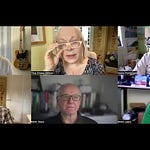





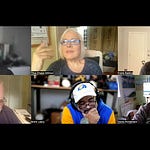

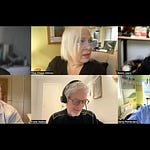

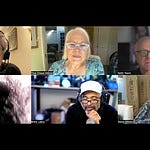

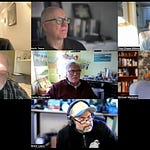
Work from Home